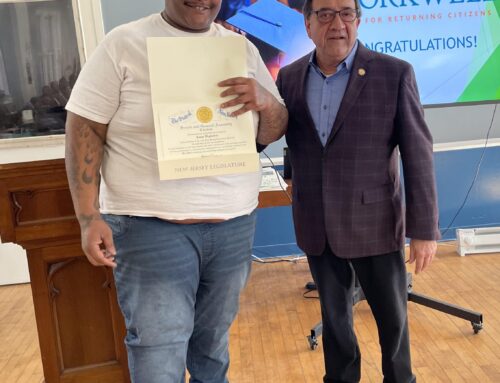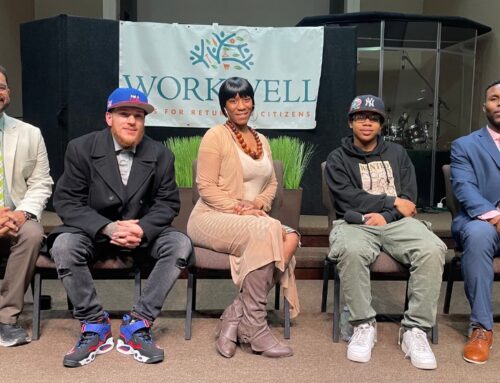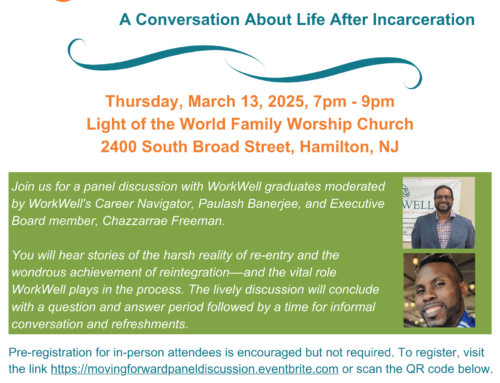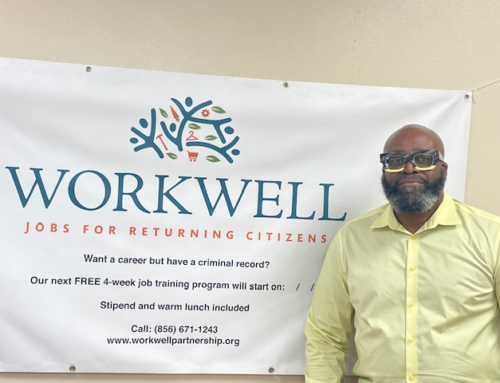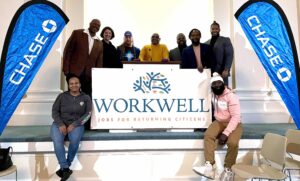
Formidable barriers stand in the way of ex-offenders trying to establish stable lives. WorkWell recently hosted a panel discussion to address this topic. Held at the Presbyterian Church of Lawrenceville last February, the panel consisted of five WorkWell graduates and their mentor, a returning citizen who owns his own business. Each spoke movingly about life in prison and beyond. Their comments were honest, painful, and deeply courageous.
The panelists identified some of the barriers: incarceration forces inmates to “put on masks,” to “man up” so that no one “punks” them, which can impair judgment as they seek to reenter society; prison education programs often fall short of their aims; returning citizens often confront homelessness, difficulty finding employment, psychological trauma, lack of healthcare, and stigma; and last but not least, society is quicker to judge than to give a second chance. How have the panelists managed to navigate such obstacles?
All agreed that prisons are harsh environments, that correctional institutions should have more programming and less rigid discipline. The panelists also agreed, however, that they couldn’t lay the blame for their troubles on the prison system. This insight helped them turn a corner.
According to Larry, “It started to click in my head: prison wasn’t the problem, I was the problem.” Marcus echoed that sentiment: “I realized that I was an adult with a child inside me, the little boy I didn’t give a chance to grow up.” For Aixa, the turning point came with the realization that she had to become a better person for the sake of her children. Jonah changed his life when, as he says, “providence put the right people in my path. They told me, ‘You’ll get tired of coming back to prison before they get tired of putting you in here.’”
Establishing a stable life beyond prison is an ongoing process. Marcus mentioned a common problem for returning citizens: “People on the street that we used to hang with want to keep us back. You have to go swimming away from those barriers.” For Larry, the problem is not to become complacent: “I’m just a thought away from being back where I was. I’ve got to keep my memory and my focus.”
Since graduating from WorkWell, each of the five panelists has received an offer of employment. Three are currently working and two are set to begin new jobs. All praised WorkWell for making a difference in their lives. In Jonah’s words, “WorkWell is a beacon of hope, fellowship, and love. It’s great to find people out there who offer a second chance. This program gets five stars!”
The panel was well attended and eye opening. Many thanks to event sponsor Chase Bank, represented by community development manager Seyi Ola; WorkWell trainer and panel moderator Anthony Batista; the CEO of Team Chizel Fitness, Dontae Thomas, a mentor to WorkWell trainees and a powerful voice for returning citizens; and all the other dedicated staff and volunteers who made this moving event happen.

